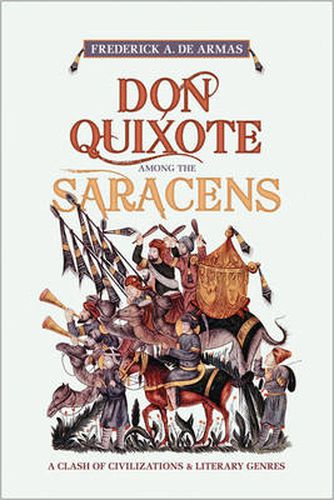Readings Newsletter
Become a Readings Member to make your shopping experience even easier.
Sign in or sign up for free!
You’re not far away from qualifying for FREE standard shipping within Australia
You’ve qualified for FREE standard shipping within Australia
The cart is loading…






The fictional Don Quixote was constantly defeated in his knightly adventures. In writing Quixote’s story, however, Miguel Cervantes succeeded in a different kind of quest - the creation of a modern novel that ‘conquers’ and assimilates countless literary genres. Don Quixote among the Saracens considers how Cervantes’s work reflects the clash of civilizations and anxieties towards cultural pluralism that permeated Golden Age Spain.
Frederick A. de Armas unravels an essential mystery of one of world literature’s best known figures: why Quixote sets out to revive knight errantry, and why he comes to feel at home only among the Moorish ‘Saracens,’ a people whom Quixote feared at the beginning of the novel. De Armas also reveals Quixote’s inner conflicts as both a Christian who vows to battle the infidel, but also a secret Saracen sympathizer. While delving into genre theory, Don Quixote among the Saracens adds a new dimension to our understandings of Spain’s multicultural history.
$9.00 standard shipping within Australia
FREE standard shipping within Australia for orders over $100.00
Express & International shipping calculated at checkout
The fictional Don Quixote was constantly defeated in his knightly adventures. In writing Quixote’s story, however, Miguel Cervantes succeeded in a different kind of quest - the creation of a modern novel that ‘conquers’ and assimilates countless literary genres. Don Quixote among the Saracens considers how Cervantes’s work reflects the clash of civilizations and anxieties towards cultural pluralism that permeated Golden Age Spain.
Frederick A. de Armas unravels an essential mystery of one of world literature’s best known figures: why Quixote sets out to revive knight errantry, and why he comes to feel at home only among the Moorish ‘Saracens,’ a people whom Quixote feared at the beginning of the novel. De Armas also reveals Quixote’s inner conflicts as both a Christian who vows to battle the infidel, but also a secret Saracen sympathizer. While delving into genre theory, Don Quixote among the Saracens adds a new dimension to our understandings of Spain’s multicultural history.